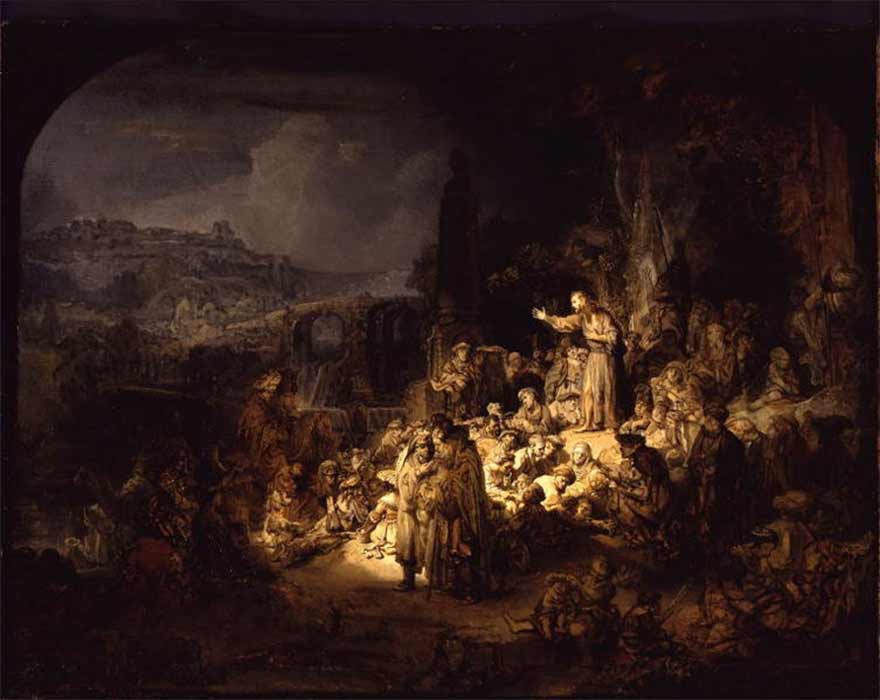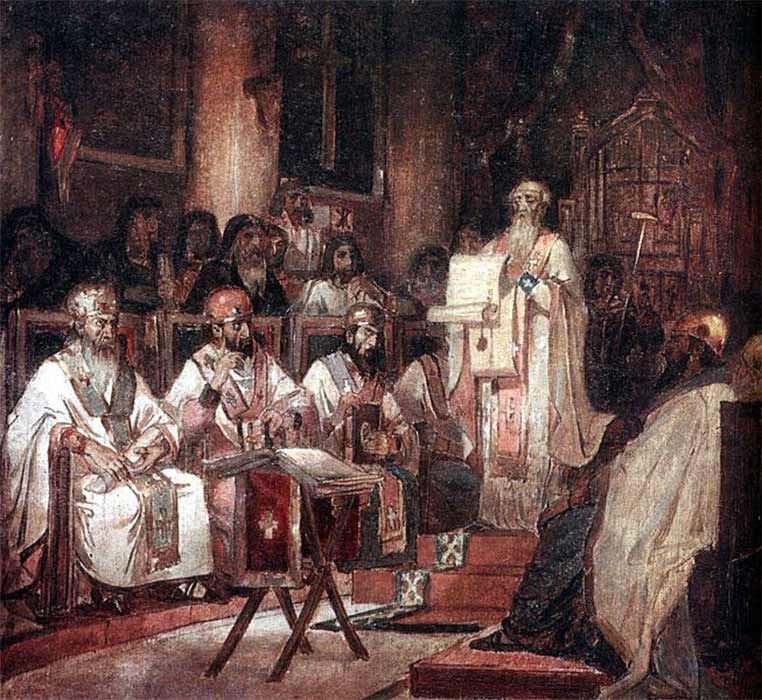
A Genesis Apocryphon: Are Humans Offspring Of Gods?
When the Dead Sea Scrolls were discovered in 1946, and gradually released to the public over the course of the next few decades, it provided valuable insight into the minds of those who wrote the Bible. The technical name for the Dead Sea Scrolls is the Qumran Cave Scrolls. The caves are located a little over a mile inland from the Dead Sea, in the area now called Israel's West Bank. About 2,000 years ago, they were home to a group of Jewish conservatives called the Essenes, who sought to live a life that would keep them untainted from the outside world. Not wanting to socialize with the "liberals" in Jerusalem, they lived in the desert in order to purify themselves while they awaited the coming of the Messiah. No less a luminary than John the Baptist might have studied with them. The Gospels say he lived "in the desert" until he announced his presence by officiating at the most famous baptism of all time. He was certainly a tough, crusty, fanatic who would fit the part.

John the Baptist Preaching by Rembrandt (1634) (Public Domain)
The Essenes’ Texts
The Essenes had amassed a library of scrolls and believed strongly that YHVH (these days translated as either THE LORD or Jehovah), the God of Light, was someday going to defeat the god of darkness — the being now called the Devil. Their theology was dualistic, no doubt derived from the time the Israelites spent in Persia, absorbing the dualism of Zoroastrianism. Many of the scrolls painted the world in shades of only right and wrong, white and black, light and dark.
In the year 70 AD, a little less than 40 years after Jesus had been crucified (which event, by the way, did not even register on the Essenes' radar), Titus and the Roman legions burned Jerusalem to the ground. Their intent was to retaliate against the Jewish establishment, who refused to honor the Roman emperor in what the Romans thought was the proper fashion. The Essenes were not concerned about their own deaths. They were willing to become martyrs for their cause. As far as they were concerned, whatever happened to them was a fulfillment of prophecy. But they did not want their library destroyed. So they carefully placed the scrolls in clay jars and hid them in caves way up in the mountains. There the forgotten texts sat undisturbed until 1946, when a Bedouin boy discovered some of them while searching for lost sheep.

Qumran's caves (CC BY-SA 2.5)
Thus it was that those clay jars lay hidden for almost 2,000 years. In that time, some of what they contained decayed and was lost forever, but the rest is very similar to the material found in today's Bible. The texts had survived because they were translated over and over again, and many copies had been made. But discrepancies between them are few and far between.
- The Shamanic Essenes, Keepers of the Dead Sea Scrolls And Other Secrets
- From The Ashes Of Angels – The Forbidden Legacy of a Fallen Race
- Who Wrote The Bible?
Although it is commonly believed that what is preached in church or synagogue every weekend came straight from the lips of the Hebrew prophets, that is simply not the case. What is preached comes from a translation made from a copy of an older copy which came from another translation written way back before English or most modern languages came about. There is no telling how much could have changed after so many transactions, given the time involved. Copyists make mistakes, especially in the centuries before spell-check. But with the Qumran discovery, scholars could compare modern translations with ancient copies which, although still far removed from the original versions, were much closer to them in time. They were more than 2,000 years old, waiting to be compared to what is read today. The most amazing discovery to come out of the recovery of the scrolls, is that most of what is recorded in the modern Old Testament is spot on! In almost every case, the Dead Sea Scrolls verify that what is read today is amazingly close to what they read back then.





